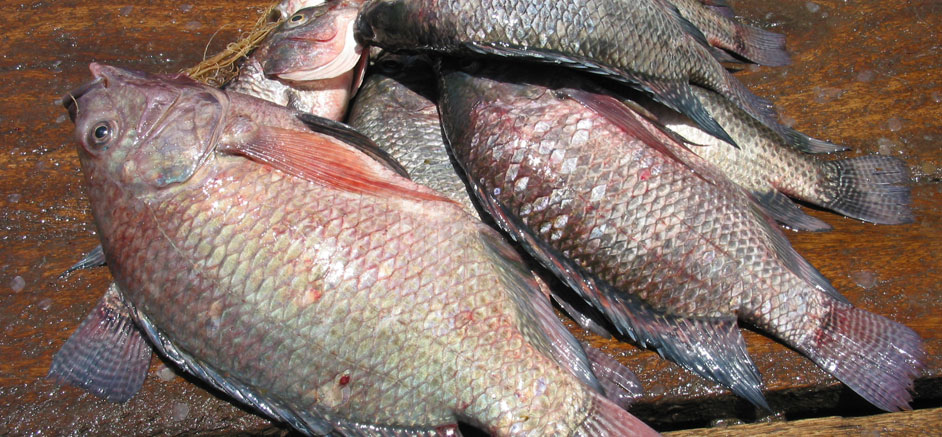
European Union through European Development Fund is set to provide about Sh1.2bn (10 million Euros) as part of its 85 million Euros committed to East Africa Community projects in agriculture, infrastructure, investment and private sector to boost fish farming industry in a bid to curb the looming shortage.
The five-year project would run from 2019 to 2024 will also help boost efforts by countries around Lake Victoria to improve on their fishing practices to save the dwindling number of preferred fish species.
“Despite efforts by riparian countries around Lake Victoria, measures to sustainably manage capture fisheries remained a big challenge with stocks of Nile Perch and Tilapia declining drastically,” said EAC Secretary General Amb. Liberat Mfumukeko during a two day workshop on regional aquaculture in Tanzania.
The 'Stakeholders workshop on the EU-EAC TRUE-FISH Programme' is co-hosted by the East African Community (EAC), the Delegation of the European Union (EU) to Tanzania and to the EAC and the Lake Victoria Fisheries Organization (LVFO). It is also supported by two technical partners: the Food and Agricultural Organization (FAO) and WorldFish.
“Notably, aquaculture in East Africa has not developed its potential and accounts for only 7-8% pf regional fish consumption. Overall demand for fish in the region is projected to rise substantially in the near future due to high growth, increasing incomes and urbanization. Developing aquaculture to meet the increasing demand for fish in East Africa is therefore crucial,” said Amb. Mfumukeko.
RELATED ARTICLE: Plastic ban, relief for Lake Victoria fishermen
Addressing the media, the Head of Delegation of the European Union to Tanzania and the EAC, H.E. Ambassador Roeland van de Geer reiterated the importance of fish farming having the potential to be a key driver for poverty eradication and sustainable development in the region: “Not only will fish farming help improve regional nutrition and food security. It will also provide new sources of rural income and contribute to contain pressure on the wild resources of the Lake Victoria”.
He further stressed that the EU-EAC TRUE-FISH programme aims to tackle some of the key challenges as well as sustainability risks for the development of market-led, competitive and sustainable commercial aquaculture in the Lake Victoria basin.
The Country Director of WorldFish for Zambia and Tanzania, Mr Sloans Chimatiro, indicated that: “in the face of climate change, sustainable aquaculture practices offer water, energy and feed conversion efficiencies superior to any other domesticated animal food production system”.
The Executive Secretary of LVFO, Mr. Godfrey V. Monor, said that catches and biomass of fish in the lake and in particular Nile perch and Nile tilapia have declined and stressed that this has been accompanied by a corresponding reduction in per capita fish consumption.
RELATED ARTICLE: World consumes more fish than beef
Consequently, he continued, “EAC Partner States are making efforts to put in place mechanisms to increase fish production through aquaculture. The LVFO, a specialized Institution of the EAC, coordinating the management and development of fisheries and aquaculture in the region, is spearheading this effort. LVFO has been instrumental in the development of the EAC Regional Strategy and Implementation Plan (2015–2020) for sustainable aquaculture and other documents providing inter alia for the establishment of harmonised legal frameworks. As well, it has been instrumental for the formulation of the EU-EAC TRUE-FISH Programme”.
The FAO Representative in Tanzania, Mr Fred Kafeero, stated that FAO has a long history in East Africa, particularly in fisheries and aquaculture on the Great Lakes.
"Through its Sub-Committee for the Management of Lake Victoria, the Lake Victoria Fisheries Organization was established and inaugurated. As such the link between FAO and LVFO is a lasting one. Likewise FAO has strong links with WorldFish and has benefited from a long-standing relationship with the EU not only in fisheries and aquaculture, but in all aspects of food and agriculture-related aspects in rural development and beyond. All the right elements are there for a successful programme,” He said.
RELATED ARTICLE: Meteoric demand for fish drives aquaculture farming
The main objectives of the workshop are to present and discuss the final design of the EU funded programme to the key stakeholders, place the programme in the context of wider fisheries and aquaculture topics of interest for the region, including on gender, and hold thematic working sessions to kick-off consultations for the preparation of implementing projects.
The workshop will be combined with Europe Day celebrations under the theme 'Gender and aquaculture'. Similar celebrations were marked on 9th May in Dar es Salaam and 17th May in Dodoma under the theme 'Gender and Agriculture.
Europe Day commemorates the 'Shuman declaration' in 1950 when French Foreign Minister Robert Schuman set out his idea for a new form of economic, and political cooperation in Europe, which led in 1957 to the Treaty of Rome. The Treaty of Rome is one of the constitutional basis of the European Union and a pillar of peace and prosperity in the region.